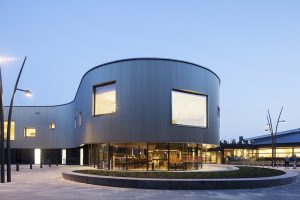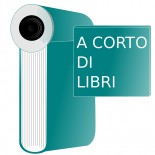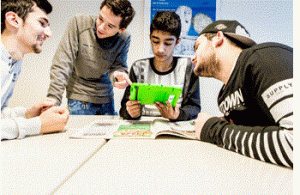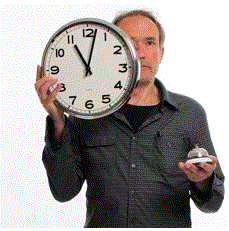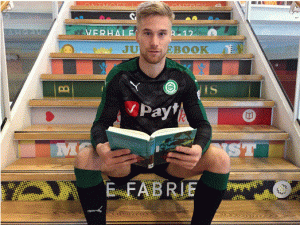By Guest Blogger
Eric Boekesteijn
Where can residents go with their questions on health care, housing, and wellbeing? In the municipality of Dalfsen, residents sometimes experience difficulties with finding the right services for information, counsel and support. Why is that? Because the supply of services is fragmented and therefore sometimes hard to find. As a result of this, residents are stuck with a request for help and do not receive the support they need on time, if at all. To solve this situation, the municipality of Dalfsen is focusing on early detection and prevention. To this end, the municipality has commission the organization for wellbeing called ‘Saam Welzijn’.
Info-Hotspots
Following the municipal commission, Saam Welzijn has proposed to establish info-hotspots: easily accessible public spaces, open to everyone, and a place for residents to express their initial requests and questions on housing, health care, and wellbeing. At these info-hotspots, requests can be clarified, information can be provided, and, if necessary, where people are kindly received and patiently guided to the appropriate authority. To carry out this idea, Saam Welzijn reached out to the Library of Dalfsen-Nieuwleusen. The library embraced the idea enthusiastically, and after a constructive breakfast brainstorm session with Saam Welzijn, developed the project Info-hotspots. The intended result of the project: actual info-hotspots in three locations of the library that are supported by an online version of the info-hotspot.
Important player
What makes this project so unique and promising? The timing for this project is just right. Both the municipality and Saam Welzijn value a good cooperation with the info-squares and both parties view the library as an important player in the social domain. Moreover, the library traditionally is an actual meeting place, where connection between people and knowledge, and people and information takes place. Right now the combination is perfect, an alliance is forged between the library as information broker, the wellbeing sector, and the municipal government. Three parties that are vital for social cohesion in the community. Eventually, the purpose is to create info-hotspots with multiple social organizations. Well-trained volunteers, provided by the different affiliated partners, will staff the front desk of the info-hotspots. Cooperation is essential for the success of the info-hotspots.
Digital info-square
It is important that the info-hotspots in the building are supported by an online info-hotspot because this will enable the organizations to properly support the residents of Dalfsen and to guide them to the right authorities. Of course, to make this work, close cooperation Is crucial. Cooperation with the municipality, managers of the digital social map, and the parties of health care, housing, and wellbeing, but also cooperation with the national digital databases, such as the Educational Map developed by the Royal Library- National Library of the Netherlands. In developing the digital info-hotspot it is important to focus on the local needs and wishes.
Questions
At the moment, the info-hotspots are being developed. Understandably, this also raises questions. Who actually owns the info-squares? Is it the municipality, the Kulturhus – which houses the libraries -, the library, Saam Welzijn, or the combined social parties? And how does the info-square fit into the concept of the library as a place of meeting? Will residents with requests for help actually come to a bustling public space? How do we ensure adequate privacy?
Impact
Still enough questions to be answered, but as stated earlier, the time is just right and everyone is on the same page. We have departed and are travelling together! Next year we will be happy to inform you of the progress and successes of this innovative project. In this, we do not mean reaching the finish line on time, but we refer to the impact that the development of the info-hotspots will have on the municipality of Dalfsen, on its partners, but first and foremost on the people living in Dalfsen.
For more information, contact Jackeline Mekkes
Program manager Participation
The Library Dalfsen-Nieuwleusen
E-mail: [email protected]
